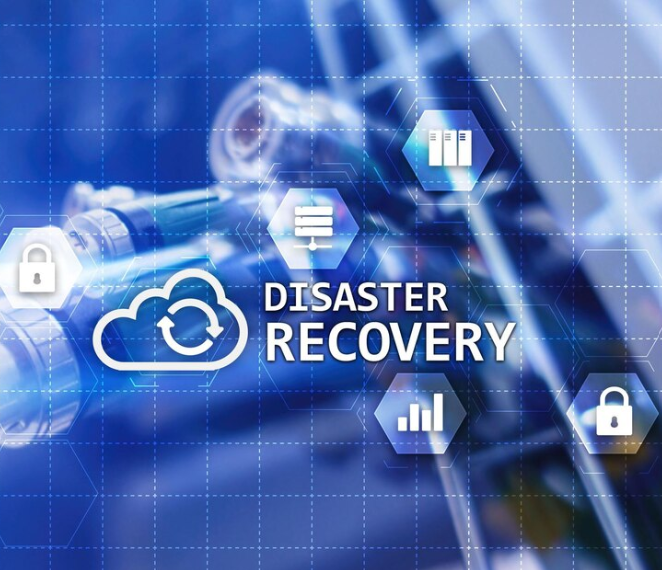
What Does ERP Software Do in the Manufacturing Industry?
ERP software plays an important role in the manufacturing industry by integrating and improving business processes across departments. It works as a centralized platform where important information from production planning, inventory management, purchasing, and human resources is accessible in real-time. This integration helps manufacturers optimize production scheduling, ensuring efficient resource use such as raw materials, equipment, and labor.
For example, a textile manufacturer using ERP can synchronize production schedules with real-time inventory data. This ensures timely fulfillment of fabric orders without unnecessary accumulation of inventory. Thus, it enhances operational efficiency and cost-effectiveness.
In addition to scheduling, ERP systems offer real-time visibility into inventory levels. This helps businesses to maintain optimal stock levels throughout the supply chain. By closely monitoring inventory, manufacturers can avoid tying up capital in excess stock or interruptions from stock shortages. This capability is especially important in industries with seasonal demand variations, where precise inventory management directly impacts profitability
Core Benefits Of Cloud-Based ERP System For
Manufacturing Business
Allow For Real-time Access To Business Information
A cloud-based ERP system provides real-time access to business information, allowing
employees to view up-to-date data from any location. This function helps managers and staff
make informed decisions quickly, leading to improved operational efficiency.
For example, a production manager can remotely check inventory levels and production
schedules. This allows for timely adjustments to avoid delays and keep operations running
smoothly. Real-time data access also helps identify and address issues promptly, reducing
downtime and increasing productivity.
Additionally, sales teams can access customer orders and inventory status. It helps them ensure
they respond accurately and quickly to client inquiries.
Enable to Improve Communication
A cloud-based ERP system enhances communication across all departments. It gathers
information in one place, making it accessible to everyone in the organization. This shared
access helps departments work together more effectively and ensures that everyone is on the
same page.
For example, the production team can update their progress, and the sales team can see this
update and adjust their sales pitches accordingly. This real-time sharing of information reduces
misunderstandings and simplifies workflows.
Additionally, managers can use the system to communicate updates or changes in processes
quickly. This ensures that all employees
Simplifies Accounting Tasks
A cloud-based ERP system makes accounting tasks easier by automating many processes. It
tracks financial transactions, generates reports, and helps ensure accuracy in financial records.
This reduces the risk of human errors and saves time.
For example, the system can automatically update financial statements and track expenses,
allowing the accounting team to focus on analysis and strategic planning. Additionally, it can
handle payroll, invoicing, and tax calculations, further simplifying the workload for the
accounting department.
This automation leads to more efficient financial management and provides real-time insights
into the company's financial health, helping businesses make better financial decisions.
Help Track Inventory With More Accuracy
A cloud-based ERP system improves inventory tracking by providing real-time visibility into
stock levels. This ensures that businesses can monitor their inventory more accurately, reducing
the risk of overstocking or stockouts. The system updates inventory records automatically as
transactions occur, maintaining precise and current data.
This accurate tracking helps in better demand forecasting, enabling businesses to plan their
inventory needs effectively. It also supports just-in-time inventory practices, where stock is kept
at optimal levels to meet demand without excessive surplus.
Additionally, improved inventory tracking helps in reducing holding costs and minimizing waste.
It ensures that resources are allocated efficiently, and inventory is managed to support
production schedules and customer demand
Improve Production Efficiency
A cloud-based ERP system enhances production efficiency by simplifying processes and
ensuring that all departments have access to the same data. This synchronization of information
reduces delays and helps maintain a smooth workflow.
The system allows for better resource allocation by providing insights into production schedules,
machine usage, and labor availability. It ensures that production activities are coordinated and
aligned with business goals.
By identifying delays and problems in real time, the ERP system enables timely interventions
and adjustments. This results in improved productivity. Additionally, it supports continuous
improvement initiatives by providing data-driven insights that help optimize production
processes over time.
Enhances The Customer Experience
A cloud-based ERP system improves the customer experience by providing accurate and timely
information. It ensures that customer orders are processed efficiently, and delivery schedules
are met. Real-time data access allows customer service teams to provide prompt and accurate
responses to customer inquiries.
Improved inventory management ensures that products are available when customers need
them, reducing wait times and backorders. Additionally, the system supports personalized
customer interactions by maintaining detailed records of customer preferences and purchase
history. This helps in tailoring services and communications to meet individual customer needs.
By simplifying operations and ensuring reliability, a cloud-based ERP system contributes to
higher customer satisfaction and loyalty. It allows businesses to build stronger relationships with
their customers.
Get FREE Consultation For Manufacturing ERP
What Are The Key Features of ERP Software For Manufacturing?
Here We have listed some of the key features that any manufacturing ERP must have to make business operations efficient.
Integration
ERP software connects different business functions into one system. This connection links
departments like production, inventory management, purchasing, and finance, making it easy to
share data. By putting all information in a single platform, ERP improves communication,
removes duplicate data entry, and makes operations more efficient.
For example, having accurate real-time data across departments helps with better planning and
inventory control, saving money and making decisions easier. This integration ensures that
everyone in the organization has access to the same up-to-date information, promoting
collaboration and informed decision-making.
Data Analysis
ERP software provides powerful data analysis tools that help businesses make informed
decisions. By collecting and analyzing data from various departments, ERP systems offer
insights into performance metrics, trends, and potential issues. This helps managers identify
areas for improvement and optimize operations.
The system can generate detailed reports and dashboards that present data in an
easy-to-understand format. This real-time analysis allows businesses to respond quickly to
changes in the market or internal processes. Additionally, data analysis supports forecasting
and planning, enabling businesses to expect future needs and adjust their strategies
accordingly.
Increased Adaptability
ERP software helps businesses adapt to changing conditions. It provides flexible tools that
adjust as business needs change. This flexibility ensures companies respond quickly to market
changes, new regulations, and shifting customer demands.
The software supports various business processes in one system, allowing for easy updates
and modifications. This helps businesses stay competitive and efficient in the market. As
companies grow, ERP systems scale to handle increased operations, providing continuous
support.
Adaptability in ERP systems means businesses maintain smooth operations and stay ahead of
challenges, supporting long-term success.
High Level of Security
ERP software implements strong security measures to protect business data effectively. It uses
advanced encryption, strict access controls, and frequent security updates to prevent
unauthorized access and data breaches.
By storing data securely in one system, ERP software reduces the risk of data loss or theft,
ensuring data remains integral and confidential. Access permissions are carefully managed,
limiting exposure to sensitive information and enhancing overall security.
Regular data backups further strengthen these measures, enabling quick recovery in case of
system disruptions. By following strict security rules, ERP systems help businesses stay strong,
protect important information, and comply with data protection laws.
Access to Real-Time Data
ERP software provides businesses with real-time data access, which is important for making
informed decisions. It allows employees to view up-to-date information on inventory levels,
production status, and sales. This immediate access helps managers respond quickly to
changes and address issues as they arise.
Real-time data improves accuracy by reducing the lag between data collection and analysis.
Employees can rely on current information, which minimizes errors and enhances
decision-making processes. For example, real-time inventory data helps prevent stockouts and
overstocking by showing accurate stock levels.
Having real-time data available across departments fosters better collaboration. Teams can
work together more effectively when they share the same updated information, leading to more
coordinated and efficient operations.
Automation
ERP software automates many routine tasks, saving time and reducing errors. Automation
covers areas like data entry, order processing, and inventory tracking. By handling these tasks
automatically, ERP systems free up employees to focus on more strategic activities.
For example, automatic order processing ensures that orders are handled quickly and
accurately. This reduces delays and improves customer satisfaction. Similarly, automated
inventory tracking keeps stock levels accurate without manual checks, preventing shortages or
overstocking. Automation simplifies operations, enhances productivity, and allows businesses to
operate more smoothly.
Customer Relationship Management
ERP software includes CRM features that help manage customer interactions and improve
relationships. CRM tools track customer data, such as purchase history and preferences,
allowing businesses to offer personalized service. This leads to better customer satisfaction and
loyalty.
The system also helps manage sales and marketing activities, providing insights into customer
behavior and market trends. By analyzing this data, businesses can develop targeted marketing
campaigns and sales strategies. CRM features in ERP systems ensure that customer
information is easily accessible, enabling quick responses to inquiries and issues. This complete
customer relationships management supports long-term business growth and success.
Improved Efficiency
ERP software increases efficiency across all business operations. By automating routine tasks
and bringing information together, it reduces the time and effort needed to complete various
processes. This leads to faster workflows and higher productivity.
Employees can access real-time data, which helps them make quick and informed decisions.
This minimizes delays and errors, ensuring that tasks are completed correctly the first time.
Improved efficiency also means that resources are used more effectively, reducing waste and
lowering costs.
Reduced Infrastructure Costs
ERP software lowers infrastructure costs for businesses. Using a cloud-based ERP system
helps companies avoid high expenses related to maintaining physical servers and hardware. It
eliminates the need for constant upgrades and maintenance, which are costly and
time-consuming.
The provider manages Cloud-based ERP systems, so businesses reduce staffing costs and free
up resources for other critical areas. So that companies don't need a large IT team to handle
any ERP technical issues.
With a subscription-based model, businesses spread costs over time rather than making a
significant upfront investment. This approach makes budgeting easier and more predictable,
helping businesses manage their finances more effectively.
Improved Collaboration
ERP software enhances teamwork within businesses by helping communication and information
sharing across departments. This improved collaboration ensures that teams work together
efficiently, leading to more productive processes.
ERP systems gather data in one place and provide access to real-time information, allowing
employees to collaborate effectively on projects and tasks. For example, a marketing team
easily coordinates with sales and production departments to match campaigns with inventory
levels and customer demand.
The software supports collaborative workflows by automating processes and approvals.
Resulting in reducing manual hand-offs and delays. This automation ensures tasks progress
smoothly through different stages. It also helps enhance overall efficiency and reduce errors.
Silent InfoTech has helped more than 200 Manufacturer's with Cloud ERP Solutions
What is the Function of the Best Cloud Manufacturing ERP
Systems?
Planning and Scheduling
ERP systems assist in planning and scheduling production activities efficiently. They help
businesses allocate resources like labor, materials, and machinery to meet production targets.
With an ERP system, managers create detailed production plans that optimize workflow. This
reduces delays and ensures timely task completion. Precise scheduling ensures that production
processes run smoothly, leading to higher productivity and better resource management.
Equipment performance tracking
ERP systems track the performance of machinery and equipment. They monitor usage,
efficiency, and maintenance needs, helping to prevent unexpected breakdowns. By scheduling
regular maintenance based on data insights, businesses can reduce downtime and extend the
lifespan of their equipment. This proactive approach ensures that machines operate at peak
efficiency, contributing to consistent production output.
Quality assurance
ERP systems manage quality control processes to ensure that products meet industry
standards and customer expectations. They track production quality at every stage, from raw
materials to finished goods. This monitoring helps identify and address defects early, reducing
waste and rework. By maintaining detailed records of quality metrics, ERP systems help
businesses improve their processes and consistently deliver high-quality products.
HR
ERP systems handle various HR functions, making administrative tasks easier. They manage
payroll, recruitment, employee records, and performance evaluations. By automating these
processes, ERP systems reduce errors and save time. Employees and managers can access
information easily, which improves communication and efficiency within the organization. This
unified approach ensures that HR tasks are completed accurately and promptly, contributing to
a more organized and productive workplace.
Purchasing
ERP systems manage purchasing processes, making it easier to source materials. They handle
tasks such as purchase orders and payment processing. By automating these activities, ERP
systems reduce manual errors and ensure timely material delivery. This efficiency helps
businesses maintain good relationships with suppliers and keeps production schedules on track.
The improved purchasing process also helps in negotiating better prices and terms, ultimately
reducing costs.
Order Management
ERP software simplifies order processing, from entering orders to delivering them. It ensures
that customer orders are accurately recorded and efficiently processed. Businesses track orders
in real-time, monitor the status of each order, and address issues promptly. This system reduces
errors, speeds up delivery times, and enhances customer satisfaction. Efficient order
management also improves inventory control.
Smooth Manufacturing Execution
ERP systems manage manufacturing activities to ensure efficient production processes. They
improve workflows and optimize resource allocation, enhancing productivity. Automated tasks
such as scheduling and inventory management are crucial as they minimize errors and delays,
helping departments work together smoothly from production to shipping. Businesses can
thereby maintain consistent production levels, meet deadlines, and respond quickly to market
demands
Quality Control
ERP systems oversee quality control processes to ensure products meet high standards. They
monitor production quality from raw materials to finished goods. This monitoring helps identify
and address defects early, reducing waste and rework. Detailed quality metrics maintained by
ERP systems enable continuous process improvement and consistent product quality. By
focusing on quality assurance, businesses can enhance customer satisfaction.
Inventory Management
ERP systems effectively manage inventory levels and track stock movements in real-time. They
streamline warehouse operations, ensuring accurate inventory control and efficient supply chain
management. By consolidating inventory data, ERP software provides visibility across locations
and departments. This transparency helps businesses make informed decisions about stock
levels, procurement, and distribution. Additionally, automated inventory tracking minimizes
stockouts and overstocking, reducing carrying costs and improving cash flow
Choosing the Best Cloud-Based ERP for your Manufacturing
Business

1.Business Requirements
Choosing the best cloud-based ERP for your manufacturing business starts with understanding
your business requirements and strategic goals. Identify essential functionalities to improve
operations and support growth. For example, ensure the ERP system can effectively manage
detailed manufacturing requirements. This evaluation ensures the ERP solution meets your
objectives, enhancing efficiency and enabling scalability.

2. Customization Options
Look for ERP solutions that offer flexibility and customization features. Your manufacturing
processes are unique, needing software that can adapt to specific workflows. Ensure the ERP
system allows customization without sacrificing efficiency. This flexibility ensures the software
integrates smoothly with your business needs, enhancing productivity and supporting long-term
growth.

3. Data Migration Capabilities
Check how well the ERP system transfers data from current platforms to the new cloud-based
solution. Make sure they offer reliable help for data migration to reduce interruptions and keep
operations smooth during the transition. This is important for integrating your manufacturing
data into the new ERP system.

4. Disaster Recovery Capabilities
Check how well the ERP system protects important data and keeps your business running
during unexpected problems. Ensure it has strong plans for backing up, securing, and
recovering data to reduce downtime and prevent data loss. This is essential for maintaining the
strength and safety of your manufacturing operations.

5. Scalability & Ease of Use
Look for how easily the ERP system can grow with your business needs. Ensure it is easy for
your team to use without extensive training. Scalability allows the software to handle increased
data and users as your business expands, supporting long-term growth and efficiency.
Conclusion
ERP software greatly improves efficiency and productivity in manufacturing businesses. It helps with planning, scheduling, inventory management, and finance by providing real-time insights. By automating tasks and reducing errors, ERP systems enhance teamwork and decision-making. Cloud-based ERP systems add benefits like scalability, cost savings, and better security, making them a valuable investment for businesses looking to improve processes and adapt to industry changes.

Rajesh R
A seasoned IT Integrations and ERP Solution Architect boasts over a decade's expertise in revolutionizing business processes through cloud-based ERP and MIS software solutions. Proficient in leveraging avant-garde technologies such as Blockchain, Al, IoT, etc in crafting bespoke software solutions. His extensive background encompasses tailor-made software solutions across diverse industries like Sales, Manufacturing, Food Processing, Warehouse Operations→ and B2B Businesses. Rajesh excels in engineering and deploying enterprise-grade business software, playing a pivotal role in Business Solution Consulting and designing intricate software solution architectures for many Fortune 500 enterprises.
Schedule Consultation with Rajesh Schedule Now